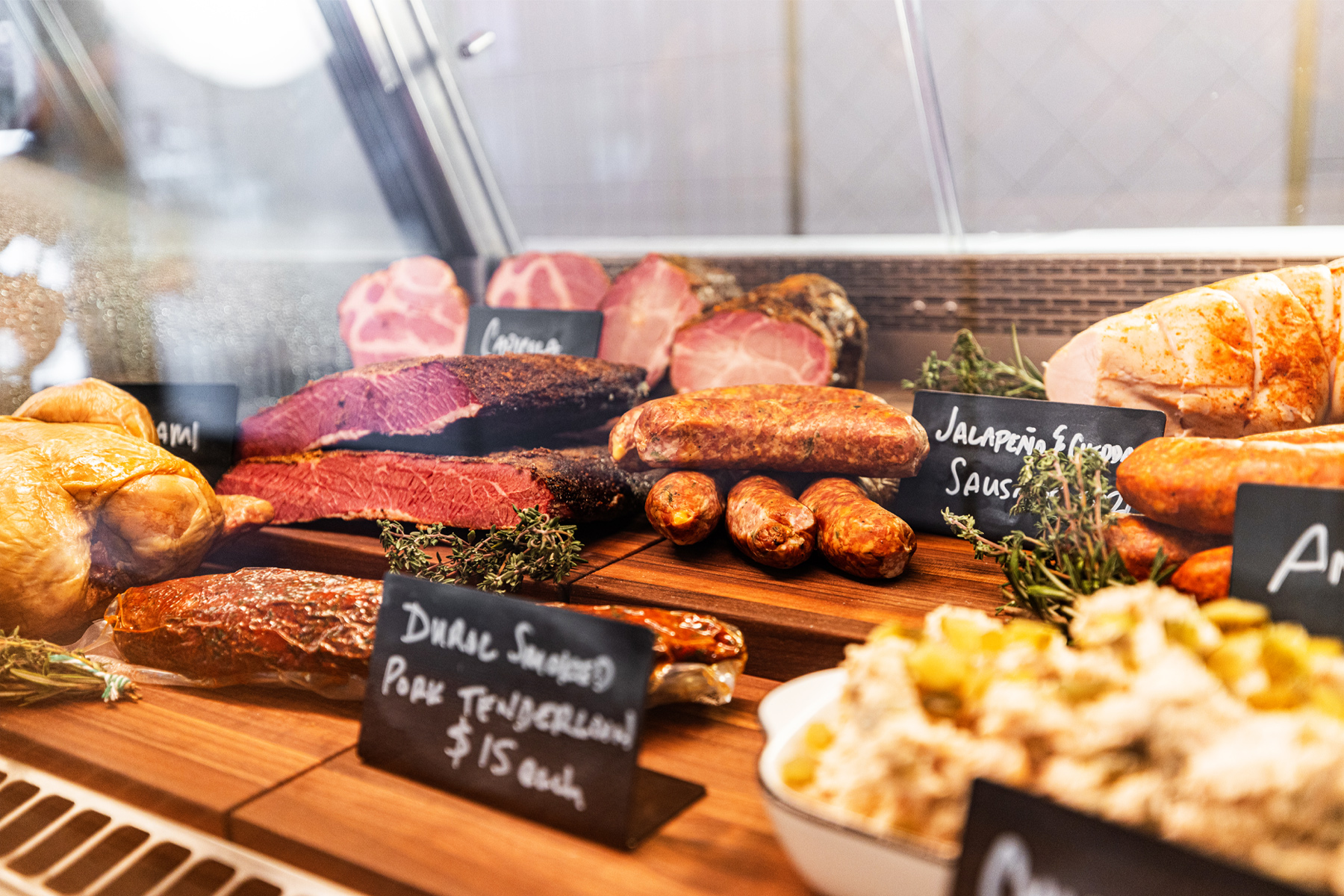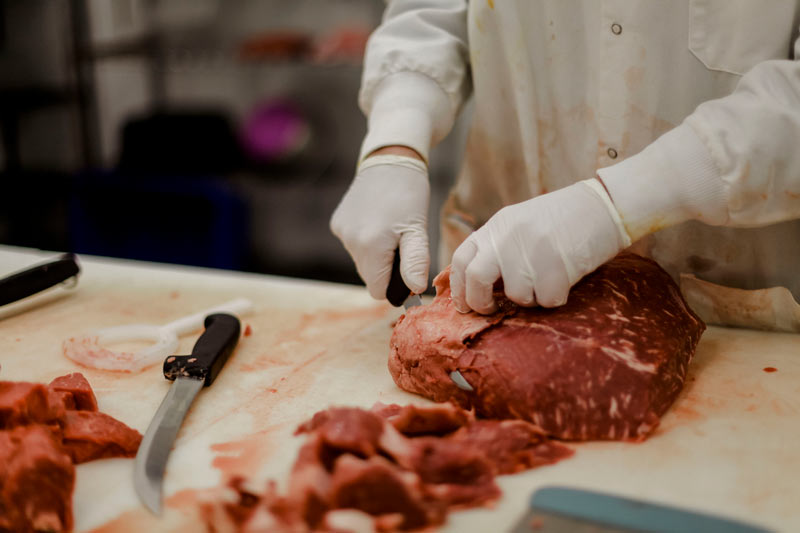Why Shopping at a Local Meat Market Guarantees Fresh, High-Quality Cuts
Purchasing at a regional meat market offers unique advantages that commonly go undetected by consumers accustomed to bigger retail chains. These markets give direct accessibility to fresh, high-quality cuts, a result of lessened transportation time from farm to counter. This not just enhances flavor but additionally sustains local farmers, cultivating neighborhood connections and lasting techniques. Extensive high quality control gauges make certain that each acquisition fulfills high standards of safety and security and quality. Yet, the effects of choosing local expand beyond instant advantages, prompting a more detailed assessment of what this choice genuinely suggests for both customers and the regional economic climate.
Benefits of Regional Sourcing
In the world of food purchase, the advantages of neighborhood sourcing attract attention plainly. By acquiring meat from neighborhood markets, consumers get direct access to products that are usually fresher and much more delicious than those found in bigger, industrial grocery stores. Regional sourcing minimizes the time and range food travels from farm to table, which not only enhances taste but additionally maintains dietary value.

Additionally, regional sourcing commonly supplies transparency regarding the origins of the meat. Consumers can ask about the farming practices used, pet welfare requirements, and whether the meat is organic or grass-fed. This info encourages consumers to make enlightened choices straightened with their values.
High Quality Control Specifications
Neighborhood meat markets usually abide by extensive quality assurance requirements that make certain the products used satisfy high safety and security and freshness standards. These standards commonly incorporate various stages of the meat manufacturing procedure, from sourcing to dealing with and storage space.
First, neighborhood markets frequently establish rigorous vendor requirements, making sure that just respectable ranches and manufacturers are used - bagley meat market edwardsville il. This lowers the possibility of contamination and promotes higher pet welfare requirements. Additionally, lots of local meat markets apply routine inspections to confirm that the meat is processed under hygienic problems, further reducing health and wellness dangers
Temperature control is one more essential aspect of quality control. Local meat markets regularly keep an eye on refrigeration systems to preserve ideal storage space temperature levels, guaranteeing that meat remains fresh and safe for usage. The execution of traceability systems enables markets to track the origin of their items, offering transparency and liability.
Last but not least, team at regional meat markets are frequently educated to identify indications of spoilage and understand appropriate handling methods. This dedication to quality assurance not just elevates the general criterion of the meat yet likewise fosters customer trust fund, making regional meat markets a trusted source for top quality cuts.
Supporting Regional Farmers
Sustaining regional farmers is important for fostering a sustainable food system and enhancing area resilience. They straight contribute to the livelihoods of farmers in their region when customers select to shop at regional meat markets. This not only supports the neighborhood economy however also reinforces useful reference the agricultural market, making certain that it stays lively and sensible.

Additionally, sustaining local farmers fosters a feeling of area and connection between manufacturers and customers. It motivates transparency in food sourcing and infuses depend on, as customers can develop partnerships with the people that elevate their food. This straight connection ultimately leads to an extra involved and educated public, which is critical for promoting for sustainable farming practices in the future.
Lasting Practices
Sustainable techniques in meat markets play a crucial function in promoting ecological stewardship and ensuring animal well-being. Local meat markets commonly focus on sourcing their products from farms that implement lasting and honest farming methods. These techniques include rotational grazing, which aids keep dirt wellness and minimizes carbon emissions, alongside decreasing using prescription antibiotics and hormonal agents in livestock.
In addition, neighborhood meat markets typically emphasize openness in their supply chains. Consumers are given with details relating to the origin of their meat, permitting them to you can try this out make educated choices that align with their worths. By supporting regional farmers who exercise lasting approaches, consumers contribute to the conservation of biodiversity and the reduction of transport emissions linked with long-distance meat circulation.
Additionally, numerous regional meat markets take part in waste reduction approaches, such as using every part of the animal and promoting off-cuts that could otherwise go unsold. By fostering a more lasting approach to meat consumption, these markets not just give top quality items but additionally contribute positively to the atmosphere and animal well-being. Essentially, purchasing at a neighborhood meat market aligns consumers with a wider motion towards accountable and honest food sourcing.
Customized Customer Support
Buying at a meat market often incorporates greater than simply the products offered; it is also concerning the experience and the relationships built between customers and personnel. Customized customer support is a characteristic of local meat markets, establishing them besides bigger grocery store chains. Educated personnel make the effort to understand private client preferences, making sure that each check out is customized to particular needs.
Customers take advantage of professional recommendations on cuts, food preparation approaches, and prep work tips, fostering a feeling of trust fund and loyalty. This tailored communication permits clients to ask concerns and look for referrals, resulting in educated purchasing decisions. Personnel typically bear in mind normal clients and their preferences, producing a welcoming environment that cultivates community connections.
Additionally, individualized solution expands to unique demands, such as personalized cuts or details preparation approaches, which bigger retailers might not fit. This level of attention enhances the commitment of neighborhood meat markets to top quality and client fulfillment.
Fundamentally, individualized client service not just improves the buying experience but likewise guarantees that consumers leave with the most effective items suited to their cooking demands, making every browse through a satisfying one.
Final Thought
Sustaining regional farmers fosters neighborhood partnerships and enhances the neighborhood economic situation, while sustainable practices contribute to ecological stewardship. Furthermore, tailored customer solution improves the purchasing experience, making neighborhood meat markets a recommended option for consumers seeking both top quality and honest considerations in their food sourcing.
The implications of picking regional expand beyond prompt benefits, prompting a better examination of what this selection genuinely indicates for both customers and the neighborhood economy.
Sustaining regional meat markets additionally adds to the regional this post economic situation. Regional meat markets often monitor refrigeration systems to keep ideal storage temperatures, making sure that meat remains fresh and secure for intake.Neighborhood farmers are frequently much more attuned to the specific needs of their communities, expanding plants and elevating livestock that straighten with neighborhood tastes and preferences. Supporting neighborhood farmers cultivates area partnerships and enhances the regional economy, while lasting methods contribute to ecological stewardship.